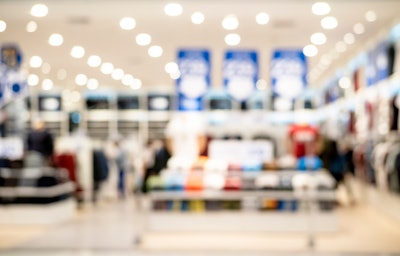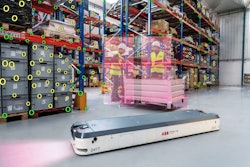
The retail industry is facing a critical juncture where consumers are experiencing a disconnect between their shopping expectations and the in-store reality. As global retail markets continue to evolve, the industry grapples with the challenges of ro Slling out in-store technology and integrating advanced Artificial Intelligence (AI) technology while optimizing the supply chain and addressing growing security concerns.
According to SOTI’s new global retail report, Techspectations: Consumer Demand for Digital Transformation in Retail, retailers are grappling with the heightened expectations of consumers anticipating seamless in-store interactions, personalized recommendations and instant access to inventory online and in-store to ensure their continued loyalty.
“It is crucial to recognize that AI plays a significant role in harnessing deeper intelligence from devices,” says Shash Anand, SVP of Product Strategy at SOTI. “AI-driven diagnostic intelligence and proactive support solutions empower retailers to identify and resolve issues before they impact the consumer experience. By integrating location, signal strength and speed data with critical business information, such as inventory levels and delivery status, AI can ensure that in-store hyper-personalization can replicate the seamlessness consumers expect from online shopping.”
Key Takeaways:
- While consumers crave technology to improve their in-store shopping experience, those offered by retailers do not always meet expectations. The study found that while 91% of global consumers have used in-store technology, many believe these devices make the shopping experience worse. Consumers cite challenges in-store such as a lack of staff to assist with issues relating to self-serve machines (51% of users) and as many as 35% of users complain about poor Wi-Fi connectivity when using an in-store device.
- Supply chain optimization in the retail industry is critical, as consumers now demand real-time information, efficient product availability and rapid delivery in-store and online. The global report reveals that 45% of consumers expect to be able to pick up an item ordered online from a physical store on the same day, with even higher expectations in specific regions such as Mexico (60%). Further, 74% of global consumers expect to always know the status of their orders, highlighting the need for efficient supply chain visibility.
- Security is a significant concern in the retail industry. More than three-quarters (76%) of consumers globally express concerns about entering personal details online or through in-store devices, indicating a pervasive lack of trust in the data collection and payment technologies used in retail. Security concerns extend to fraud, with 35% of global consumers worrying about becoming a victim of financial fraud and another 35% expressing concerns about identity fraud.
- The report emphasizes the importance of in-store device security, as 34% of consumers have concerns using in-store devices due to mistrust of retailers, including the potential exposure of personal details (28%) and the risk of the next user accessing personal information (26%). Despite this, 39% of consumers view in-store devices as tools to enhance shopping convenience and speed, highlighting the need for retailers to balance convenience and security while building trust among those making purchases in the retail space.












![Pros To Know 2026 [color]](https://img.sdcexec.com/mindful/acbm/workspaces/default/uploads/2025/08/prostoknow-2026-color.mduFvhpgMk.png?ar=16%3A9&auto=format%2Ccompress&bg=fff&fill-color=fff&fit=fill&h=135&q=70&w=240)




![Top Tech Startup Logo 2025 Vertical [color] (1)](https://img.sdcexec.com/mindful/acbm/workspaces/default/uploads/2025/07/top-tech-startup-logo-2025-vertical-color-1.pZkBK95TLe.png?ar=16%3A9&auto=format%2Ccompress&bg=fff&fill-color=fff&fit=fill&h=135&q=70&w=240)



